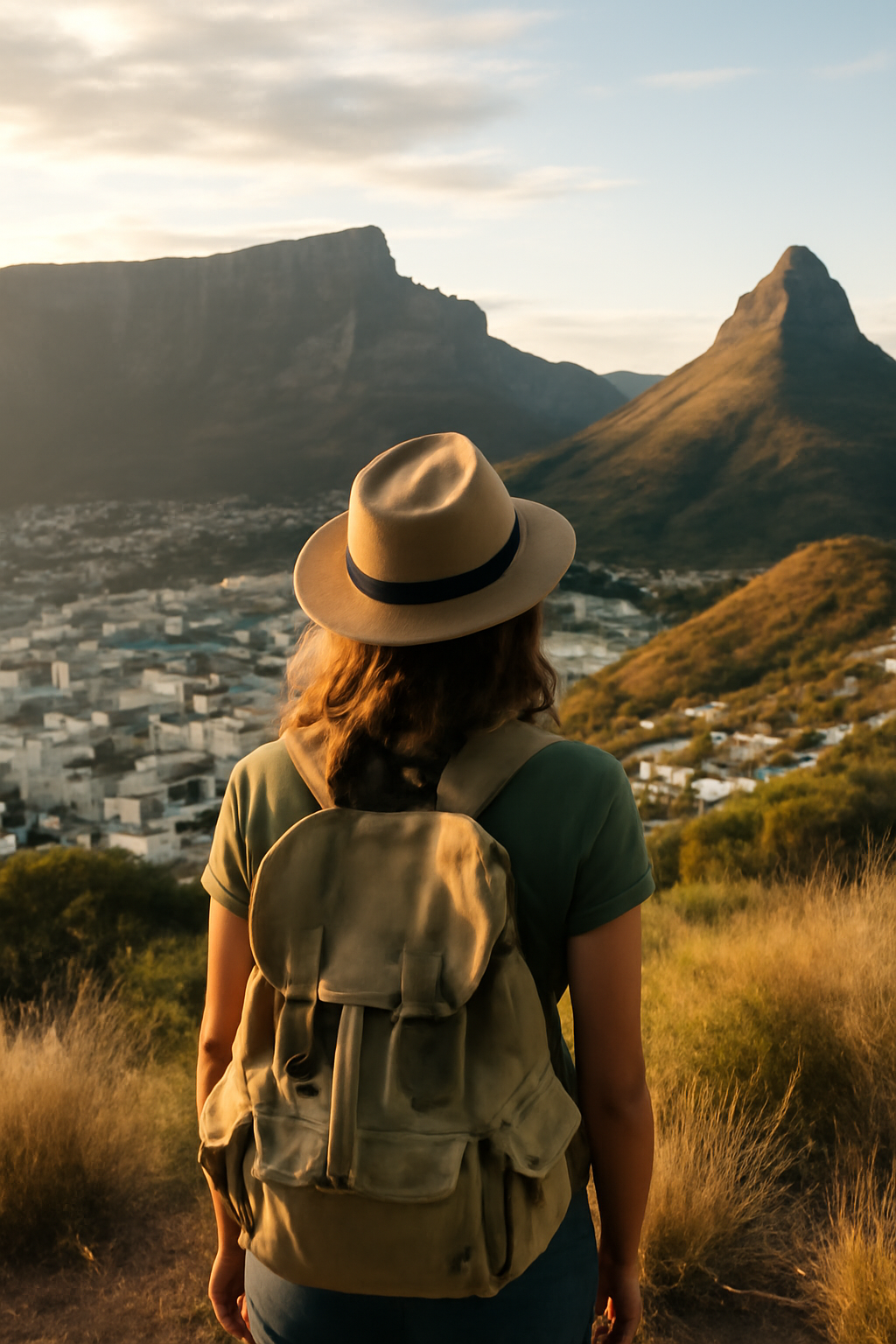🌎 Viajando na Era da Descoberta Digital
Viajar sempre foi a forma preferida da humanidade de exercitar a curiosidade.
Mas, em 2025, a maneira como as pessoas escolhem, planejam e vivem suas viagens foi completamente transformada. A combinação entre inteligência artificial, dados em tempo real e hiperconectividade redefiniu o turismo, tornando-o muito mais pessoal, intencional e participativo.
Viajar hoje não é apenas sobre destinos — é sobre significado, experiência e alinhamento com valores.
A seguir, uma visão ampla dos lugares que estão atraindo a atenção do mundo e das perguntas que estão redefinindo como nos deslocamos pelo planeta nesta nova década.
Japão, onde tradição e tecnologia caminham juntas;
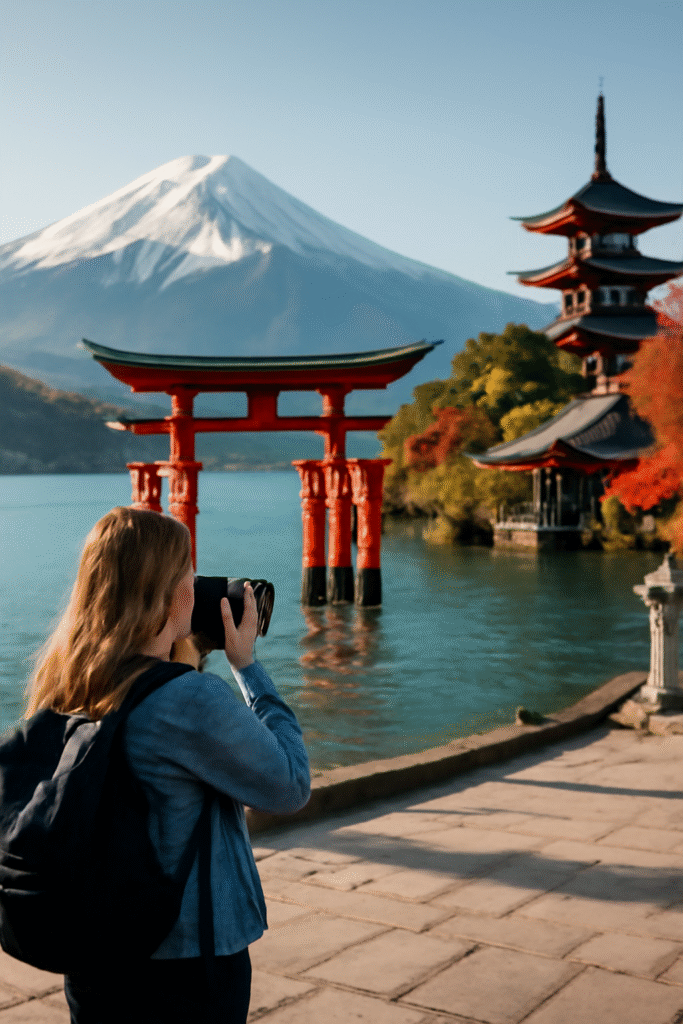
O Japão continua no topo das buscas globais por um motivo simples: nenhum outro país equilibra cultura ancestral e inovação futurista com tanta naturalidade.
Por que o Japão atrai tantos viajantes hoje:
• Profundidade cultural sem nostalgia
Templos centenários coexistem com cidades guiadas por IA, trens-bala e robótica. É possível participar de uma cerimônia do chá pela manhã e jantar em um restaurante totalmente automatizado à noite.
• Infraestrutura turística inteligente
Tradução por IA, pagamentos por reconhecimento facial e transporte público extremamente eficiente tornam a experiência fluida até para quem visita o país pela primeira vez.
• Ambiente seguro, respeitoso e organizado
Em um mundo cada vez mais caótico, o Japão oferece previsibilidade, segurança e harmonia social — valores cada vez mais valorizados.
Experiências mais buscadas:
• Distritos tecnológicos de Tóquio e museus de arte digital
• Templos de Kyoto e imersões culturais mais lentas
• Onsens e retiros focados em bem-estar e atenção plena
O Japão não vende novidade — ele entrega equilíbrio.
Portugal — O Novo Refúgio Criativo da Europa
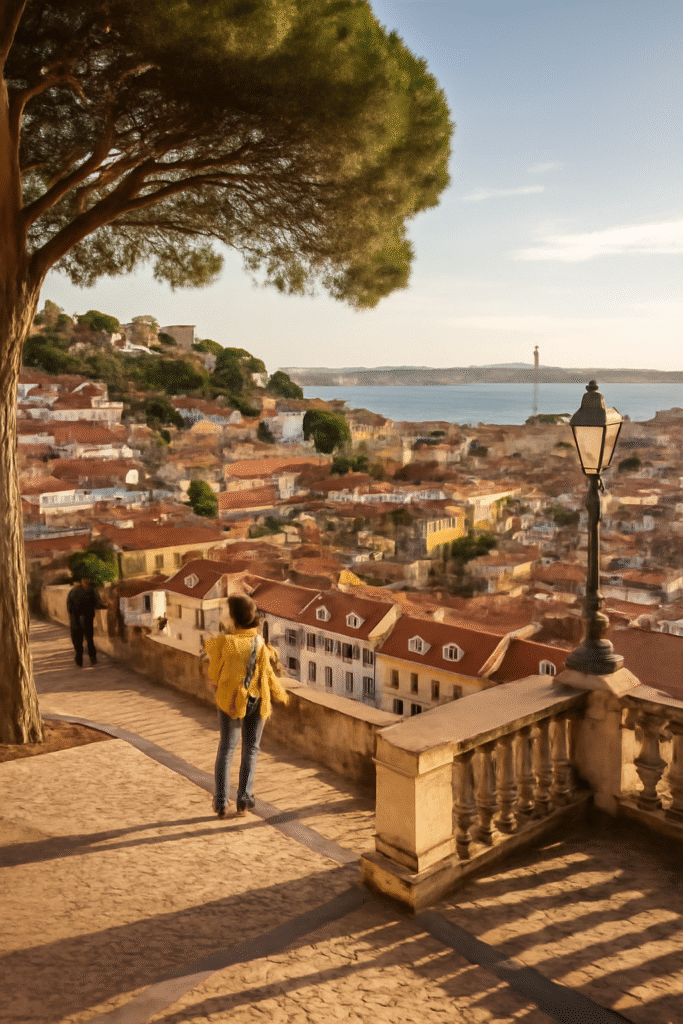
Portugal tornou-se um dos destinos mais buscados por:
• Trabalhadores remotos
• Nômades digitais
• Aposentados e profissionais criativos
Por que Portugal se destaca:
• Custo de vida acessível
• Infraestrutura digital sólida
• Clima agradável e cultura centrada nas pessoas
Lisboa e Porto atraem inovação; cidades costeiras oferecem calma, natureza e ritmo. Portugal deixou de ser apenas destino — virou projeto de vida.
Brasil — Autenticidade, Natureza e Força Cultural
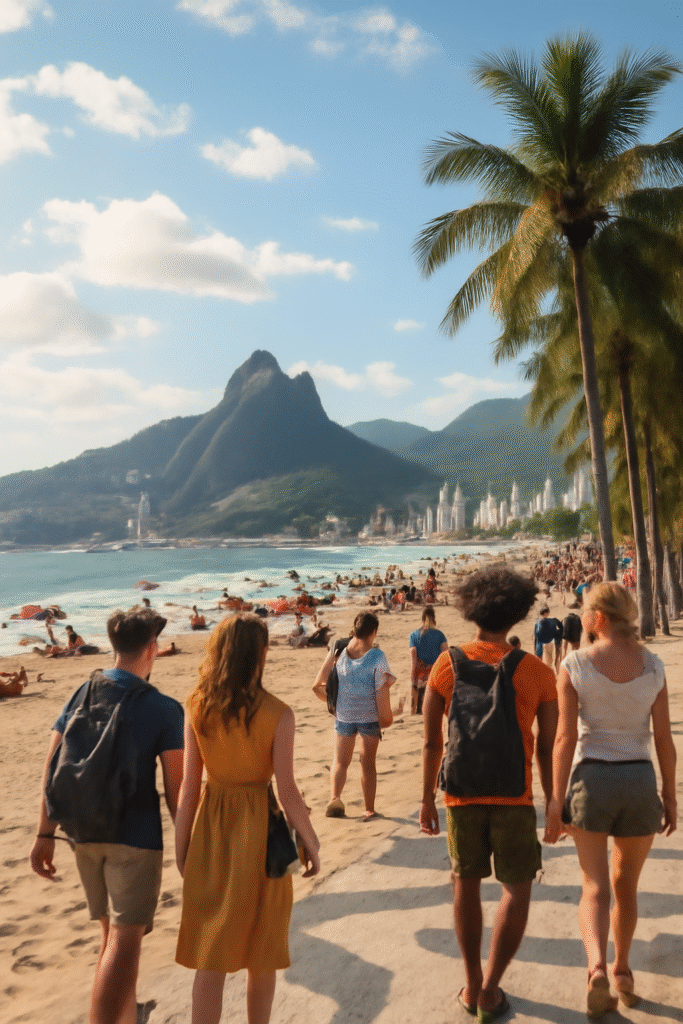
Em 2025, o Brasil vai muito além das praias.
O que os viajantes procuram:
• Ecoturismo na Amazônia e no Pantanal
• Imersão cultural na Bahia e em Minas Gerais
• Gastronomia conectada à ancestralidade e à biodiversidade
O diferencial do Brasil:
• Autenticidade crua
• Conexão emocional
• Cultura viva, não encenada
Atrai quem está cansado de destinos polidos e busca experiências reais.
Islândia — A Natureza se Desdobrando como Espetáculo
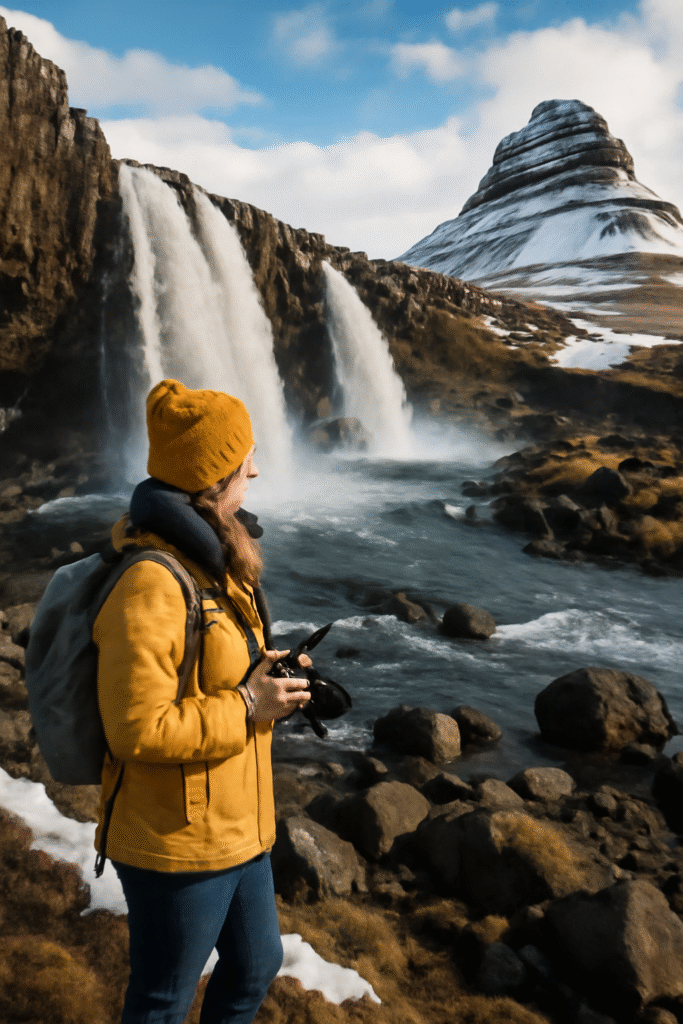
Poucos destinos capturam tanto a imaginação em 2025 quanto a Islândia, uma ilha esculpida pelo fogo e pelo gelo.
Aqui, aventura e serenidade coexistem. Turistas perseguem a Aurora Boreal como poetas em busca de cores em movimento, observam gêiseres respirarem luz, caminham por catedrais azuis de gelo e se banham em fontes geotérmicas sob um céu violeta.
As autoridades islandesas mantêm políticas rigorosas de sustentabilidade: preservação de trilhas, controle do número de visitantes e campanhas que incentivam os viajantes a “não deixar pegadas, apenas admiração”.
É mais do que um destino — é a geologia transformada em espetáculo, a natureza encenando sua própria obra-prima ancestral.
África do Sul — A Capital da Experiência do Continente
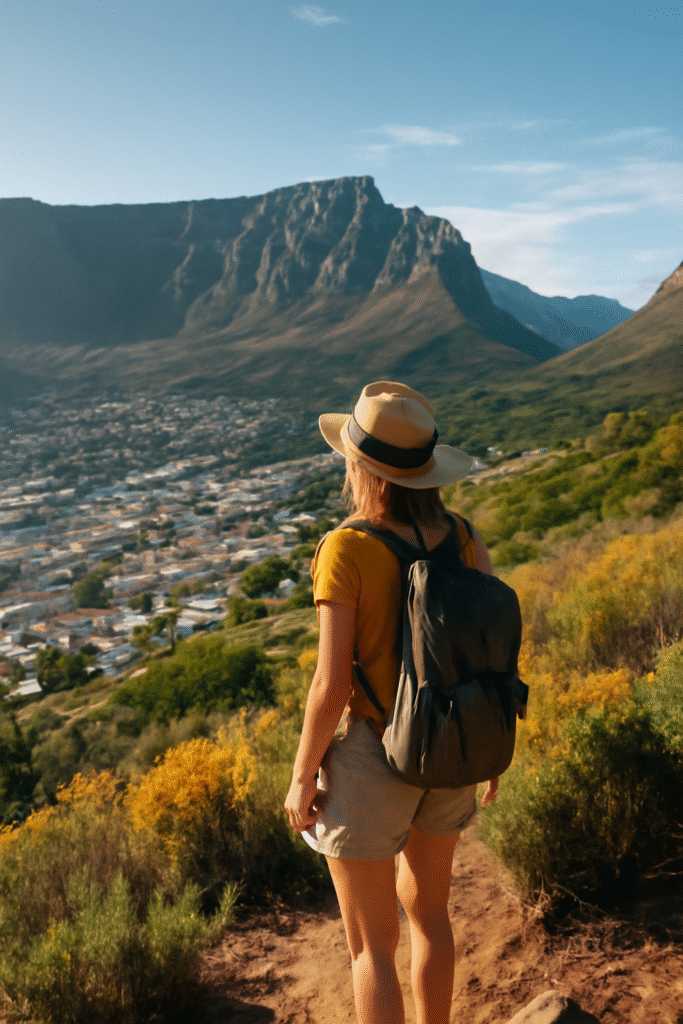
A África do Sul emergiu como o novo polo do turismo de experiências — safáris, vinhedos, falésias e cidades artísticas entrelaçados por uma rica diversidade cultural.
O Parque Kruger continua sendo o arquétipo da descoberta, lar dos famosos “Big Five” da África.
A região do Cabo Ocidental encanta com vinícolas de padrão mundial, oferecendo degustações imersivas em meio a colinas ondulantes.
Para quem busca aventura, trilhas, passeios de balão e mergulhos oceânicos combinam respeito ecológico com pura adrenalina.
Cada região revela uma harmonia entre o luxo moderno e o pulso ancestral.
Mais do que turismo contemplativo, a África do Sul oferece participação — a chance de sentir as paisagens como narrativas vivas, multiculturais e profundas.
Perguntas de Viagem Mais Buscadas no Google em 2025
🛡️ 1. Segurança
“É seguro viajar sozinho(a)?”
“Quais países são melhores para mulheres viajando sozinhas?”
A segurança continua sendo a principal preocupação dos viajantes.
Felizmente, plataformas de dados em tempo real e consultores de viagem baseados em IA agora reúnem atualizações confiáveis de segurança vindas de embaixadas e comunidades de viajantes.
O viajante moderno não parte às cegas, mas bem informado e preparado.
🌱 2. Sustentabilidade
“Como explorar sem poluir?”
O turismo consciente deixou de ser virtude para se tornar expectativa.
Desde a compensação de carbono ao optar por trens até a hospedagem em eco-resorts certificados, os viajantes estão desenhando jornadas que respeitam o planeta.
A colaboração local — consumir alimentos regionais, apoiar artesãos, escolher passeios de baixo impacto — define o novo rosto do desejo ético de viajar.
💰 3. Orçamento e Custos
“Quanto custa uma viagem completa ao Japão em 2026?”
A transparência governa a era dos dados.
Ferramentas interativas de orçamento calculam preços em tempo real com base em datas, moedas e alternativas sustentáveis, reduzindo surpresas e criando roteiros mais inteligentes.
Estar bem informado já não significa pesquisar sem fim — significa clareza algorítmica com escolhas humanas.
📄 4. Vistos e Documentação
“Preciso de visto para Portugal?”
Sistemas consulares digitais agora centralizam esse tipo de informação.
Portais automatizados de visto, autorizações eletrônicas de viagem e passaportes verificados por blockchain simplificam drasticamente a burocracia.
A era das filas em embaixadas dá lugar à verificação digital com supervisão humana.
🤖 5. Tecnologia na Estrada
“Como a IA pode planejar meu roteiro de viagem?”
“Aplicativos de tradução em tempo real realmente funcionam?”
Sim, funcionam.
Os viajantes de 2025 dependem da tecnologia como companheira:
A IA cria rotas personalizadas, aplicativos de tradução constroem pontes culturais por voz, e dispositivos vestíveis armazenam passagens, pacotes de idioma e conversores de moeda.
A inteligência deixou de ser artificial — ela se tornou assistiva.
Tecnologia Transformando a Experiência de Viagem
💡 IA como Designer do Seu Itinerário
Plataformas modernas de IA criam roteiros em segundos, analisando perfis, orçamentos e até estados de espírito.
Um viajante pode receber uma “semana de arte lenta” em Florença; outro, uma “jornada profunda pela natureza” na Costa Rica.
O aprendizado de máquina aprende com emoções: observa o que encantou na viagem anterior e organiza a próxima como se fosse um amigo — não uma fórmula.
Essa personalização transforma a exploração em narrativa: cada roteiro é único, cada sugestão é um diálogo entre dados e desejo.
💳 Pagamentos Digitais Globais
Com carteiras digitais, pagamentos por QR Code e serviços baseados em criptomoedas, viajar ficou mais simples.
Em regiões remotas, muitos viajantes descobrem que pagar pelo celular é mais seguro do que usar dinheiro físico.
Conversões de moeda acontecem instantaneamente, sobrando mais energia para descobrir o mundo — e menos para fazer contas.
🕹️ Realidade Aumentada e Turismo Imersivo
Museus e sítios históricos no mundo todo estão adotando a realidade aumentada para ampliar memória e significado.
Ao apontar o celular para um monumento, o visitante pode ver arquiteturas perdidas, traduções ou narrativas em áudio contadas por historiadores.
Essa fusão entre real e virtual aprofunda a empatia: a história não fica atrás do vidro — ela caminha ao seu lado.
🗣️ Tradução ao Vivo para Conexão Humana
Aplicativos de tradução simultânea baseados em IA generativa finalmente amadureceram — quase impecáveis, naturais e até emocionais.
Eles permitem que viajantes conversem, peçam informações ou riam com moradores locais sem barreiras linguísticas.
A tecnologia, antes acusada de isolar, agora constrói pontes.
Reflexão: Viajar como Responsabilidade e Diálogo
Viajar em 2026 vai além de listas e pontos turísticos.
Já não importa apenas para onde você vai, mas como chega — e como participa com respeito dos lugares que visita.
A acessibilidade tornou a exploração mais fácil, mas também mais impactante.
Cada escolha — o voo, a comida, a foto publicada — molda comunidades e ecossistemas.
Viajantes conscientes surgem como ativistas silenciosos, escolhendo experiências que elevam em vez de explorar.
Nesta era interligada, o turismo se torna um diálogo entre tecnologia, cultura e responsabilidade.
A grande aventura do nosso tempo não é cruzar fronteiras, mas redefinir pertencimento.
Será que viajaremos com sabedoria suficiente para manter o mundo tão belo quanto o sonho que nos impulsiona a explorá-lo?
